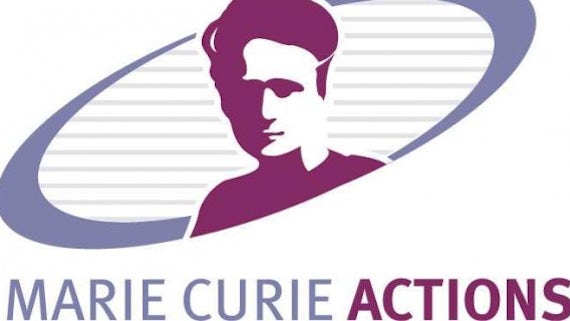Ruth Kitchen awarded a Marie Curie Intra-European Fellowship
3 Chwefror 2014

Ruth Kitchen has been awarded a Marie Curie Intra-European Fellowship for career development for her SURDITÉ Cinéma Project.
The project blends theoretical and empirical approaches in order to examine social understandings of deafness in contemporary Francophone and Anglophone cinema. The title of the project SURDITÉ Cinéma, is an acronym standing for Social Understandings and Representations of Deafness in Theory and Education through cinema.
Of the projects submitted to the Marie Curie IEF 2013 Competition, 3856 proposals achieved the threshold grade to enter the selection process. Ruth’s project is one of 614 projects selected for funding by the European Commission Executive Research Agency. The value of the award is 194, 046.06 Euros.
The fellowship will be held at the L’École des hautes études en sciences sociales (EHESS) in Paris from September 2014 to August 2016. Ruth will be based at the CERMES3 research centre for medicine, science, health and society where she will work closely with disability sociologist, Isabelle Ville, director of the Disability and Society Programme (PHS) and co-founder of ALTER European Society for Disability Research.
The project aims: to change public understandings of deafness; to construct an objective theoretical and empirical framework for researchers, artists and teachers who work in the fields of deafness, disability, or with deaf people; and to critique and influence policy at national and European levels. The fellowship will develop four interwoven research strands:
- to catalogue representations of deafness in cinema since 2000
- to collect, analyse and compare data from interviews with cinema artists (filmmakers, actors, screen writers) who have represented deafness on the screen with data from focus groups with teachers who either use cinema as a pedagogical tool for teaching about deafness or for teaching deaf children
- to analyse social theories of deafness from a range of perspectives – philosophical, sociological and psychoanalytic
- to create an objective theoretical and empirical platform for the study of social understandings of deafness which moves beyond the the divided and politicized discourses from the fields of deaf studies, deaf education and disability studies
The book developed from this work, provisionally titled Screening Deafness, will analyse the role of cinema as a critical and pedagogical tool for framing and engaging with social understandings and representations of deafness and for navigating and challenging discourses from the fields of deaf studies, deaf education and disability studies.
The project web page will go live on the EHESS pages in September 2014. The page will:
- invite and post comments from the general public about the project
- provide details of how cinema artists and teachers can be involved in the interviews and focus groups